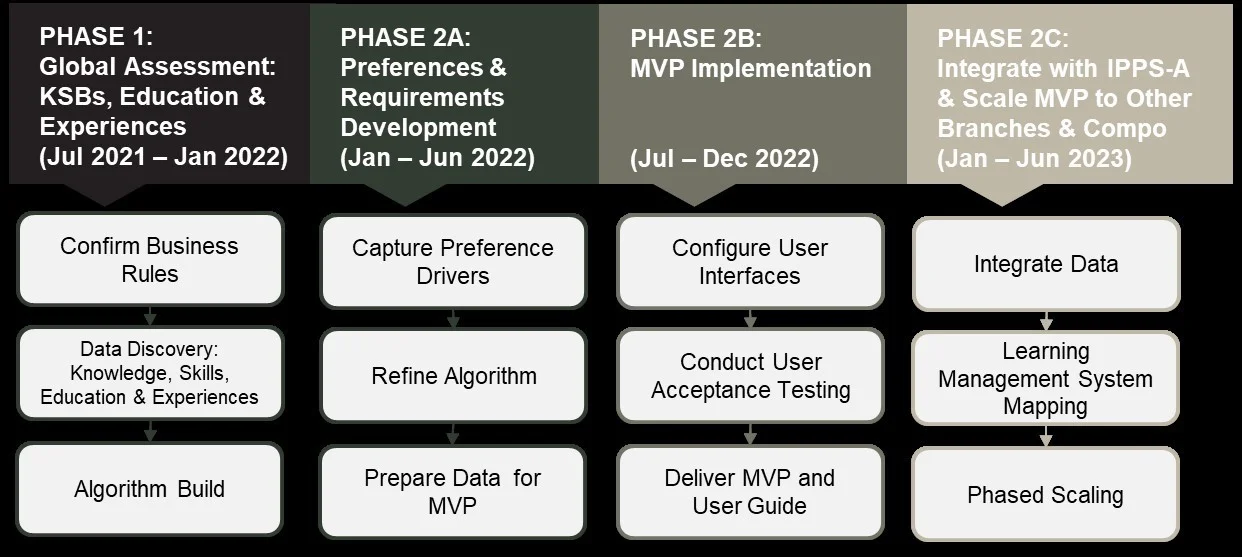
Ever thought about how HR assessments can really boost employee growth and development? Companies are always trying to grow talent and improve performance. A recent study found that businesses investing in employee development see a 24% rise in profit margins. Impressive, right? HR assessments are key here. They help spot strengths, weaknesses, and areas where employees can grow. From personality tests to skill evaluations, these tools offer insights that shape personalized development plans and build a culture of ongoing improvement. Let's explore how HR assessments can truly enhance your workforce's potential.
Summary: Dieser Artikel beschreibt, wie HR-Bewertungen das Wachstum und die Entwicklung von Mitarbeitern beeinflussen, indem sie Stärken und Schwächen identifizieren. Es wird erläutert, wie diese Bewertungen zur Erstellung gezielter Entwicklungspläne beitragen.
How Do HR Assessments Influence Employee Growth and Development?
Understanding HR Assessments
Definition and Purpose of HR Assessments
HR assessments are more than just a look at past performance. They delve into a person's skills, potential, and behavior to provide a comprehensive view of their capabilities within a company. These assessments support informed and equitable decisions regarding hiring, promotions, leadership training, and internal mobility. For example, an HR assessment might incorporate both psychometric tests and skill evaluations to identify leadership potential within a team. This structured evaluation aids companies in making informed decisions about promotions and training, ensuring employees align with the company's goals and culture.
Key Elements of Effective HR Assessments
Effective HR assessments comprise several key elements that enhance their utility in understanding employee performance and potential. They evaluate behaviors and skills relevant to specific roles and the company's broader objectives. It is crucial that these assessments adhere to labor laws and ethical standards, maintaining data confidentiality and fairness. Collaboration with department heads is essential to ensure assessments align with the skills required for specific roles. For instance, a skills test designed with input from department heads can evaluate the competencies necessary for success in particular positions. These assessments should be equitable and utilize validated tools to measure skills and behaviors. Feedback is also vital, providing employees with a clear understanding of their strengths and areas for improvement, leading to tangible growth steps.

Strategic Role of HR Assessments in Employee Growth
Aligning HR Assessments with Business Goals
HR assessments play a pivotal role in aligning employee development with company goals. They offer data-driven insights that clarify expectations and foster a culture of continuous growth linked to business success. For example, if a company values innovation, assessments may focus on creativity and problem-solving. By aligning assessments with strategic goals, companies ensure that employee development directly supports the company's success. This alignment also helps create a flexible workforce ready to adapt to changes. Utilizing assessment data, a company might emphasize training in data analytics for upcoming projects that align with strategic goals.
Identifying High-Potential Employees with HR Assessments
A significant function of HR assessments is identifying high-potential employees, which is crucial for leadership development and future planning. These assessments evaluate performance, skills, and growth potential to identify individuals with leadership qualities. This aids in planning by providing readiness scores and identifying internal candidates for management roles. For example, an employee who scores highly on leadership assessments might be fast-tracked for a management training program. By identifying and nurturing high-potential employees, companies ensure they have future leaders ready, which is vital for long-term success.
HR Assessments and Development Programs
Tailoring Development Plans Using HR Assessment Results
HR assessments provide valuable data that guides the creation of personalized development plans for employees. These results highlight skill gaps and career goals, allowing HR to tailor development efforts to each individual. Plans may include skill-building activities, mentorship, training, and timelines to address these gaps and goals. Regular feedback ensures these plans remain relevant and effective. For example, an employee needing project management skills might receive specialized training and mentorship to prepare for leadership roles. By customizing development plans based on assessment insights, companies enhance employee growth and align development with both personal and company goals.
Leveraging Data-Driven Insights for Employee Development
Data-driven insights are crucial for employee development. Employee Growth Analytics tracks key metrics such as promotion rates, training completion, engagement, and performance improvements. Assessment data informs decisions on training effectiveness, retention strategies, and aligning workforce skills with business needs. For instance, tracking skill improvements post-training helps HR refine programs for better results. Assessment data also supports equitable talent decisions and aids in building high-performance cultures, guiding where to focus training and development resources.

Technology and HR Assessments
Enhancing HR Assessments with AI Technology
AI is enhancing HR assessments by providing more personalized, data-focused evaluations. AI analyzes complex behavior and performance data to offer deeper insights into employee potential. For example, AI-powered tools can detect patterns in responses that suggest leadership potential. AI can also automate routine tasks, allowing HR to focus on more strategic work. By leveraging AI in HR assessments, companies can make smarter decisions and enhance their employee development efforts.
Utilizing Predictive Analytics for Employee Development
Predictive analytics is another tool transforming HR assessments. It analyzes historical data to predict future outcomes, such as an employee’s readiness for promotions and future skill requirements. This enables companies to proactively address challenges and seize growth opportunities. For example, using predictive scores, HR can develop talent pipelines for key roles before openings arise. By utilizing predictive analytics, companies can plan strategically and ensure their workforce is prepared for future demands.
Case Studies of Successful Use of HR Assessments
Effective HR Assessment Programs: Real-World Examples
Companies employing assessment data strategically foster environments where employees thrive, leaders develop, and business objectives are achieved. For instance, Spotify uses HR assessments to promote a culture of continuous learning and flexible career paths. It implements programs like internal mobility, career coaching, mentoring, and data-driven learning to identify skill gaps and offer targeted growth opportunities, encouraging cross-functional growth and retention. Another example is a company that enhanced promotions and leadership development through psychometric assessments. These examples demonstrate the power of well-designed HR assessments in driving employee and company success.
Challenges and Solutions in Implementing HR Assessments
Addressing Common Challenges in HR Assessments
Implementing HR assessments can present challenges that need to be addressed to ensure effectiveness. Ensuring fairness, objectivity, legal compliance, and data confidentiality are common issues. Aligning assessments with job requirements and avoiding bias are also critical. For example, a company must regularly review tools to prevent bias and ensure legal compliance. To overcome employee resistance, companies need to clearly communicate the purpose and benefits of assessments, demonstrating they are for development, not punishment.
Ensuring Fairness and Objectivity in HR Assessments
Fairness and objectivity in HR assessments are essential for their success. This involves maintaining data confidentiality, adhering to privacy laws, and using standardized evaluation criteria. Regular consultations with department heads and ongoing validation of tools help maintain objectivity. For instance, audits of assessment processes can identify and correct biases. Transparency is crucial; employees need to understand how assessments work and how results are utilized. By focusing on fairness and objectivity, companies can build trust in assessments and ensure they positively impact employee growth.
FAQs on HR Assessments and Employee Growth
Identifying High-Potential Employees Through HR Assessments
HR assessments identify high-potential employees by evaluating skills and behaviors associated with future success. They often measure leadership potential, learning agility, and problem-solving skills. By analyzing results, companies can identify individuals who excel currently and have potential for larger roles. This is crucial for succession planning and leadership development, ensuring a pipeline of capable leaders ready for key roles.
Key Metrics for Tracking Employee Development Success
To track effective employee development, focus on key metrics such as engagement levels, which indicate how invested employees are in their growth and the company. Performance metrics, like productivity and work quality, provide insights into the impact of development programs. Tracking promotion rates and internal mobility shows if development is preparing employees for new roles. Retention rates are critical, as effective development programs should enhance satisfaction and loyalty.
Impact of Personalized Development Plans on Employee Retention
Personalized development plans significantly enhance employee retention. When employees perceive that their growth needs are being met and have opportunities for advancement, they are more engaged and loyal. Personalized plans demonstrate that the company values and invests in them, increasing job satisfaction. By addressing individual needs, companies help employees build skills for future roles, increasing the likelihood of internal advancement and reducing turnover. Companies investing in development see an 11% profit increase and double the employee retention rate. Career development programs have a 30% greater business impact, highlighting the strong link between structured development and business success. By aligning development plans with personal and company goals, companies create motivating paths that encourage engagement and long-term retention.